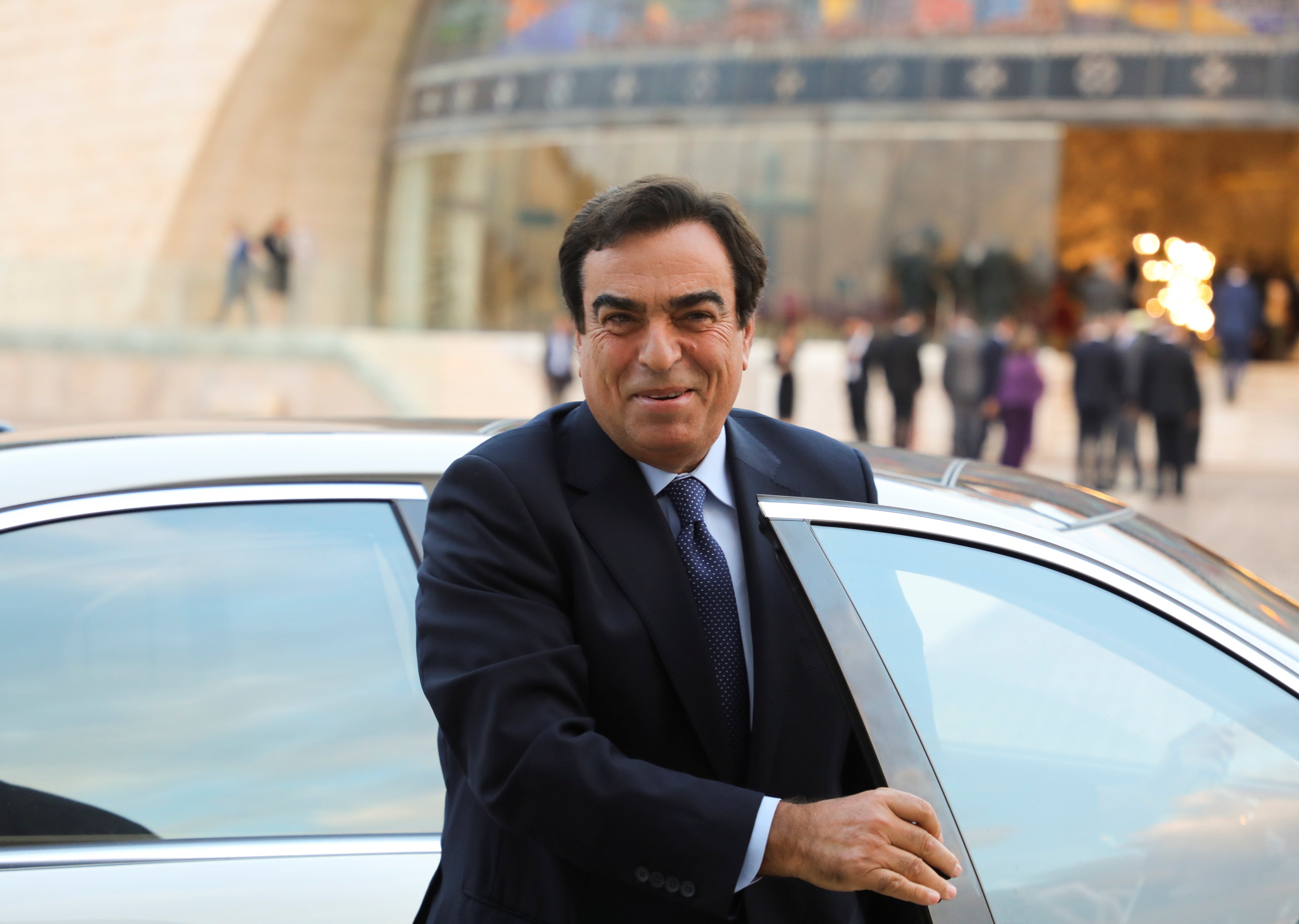Lebanon PM warns country on ‘downhill slope’ as diplomatic spat with Gulf countries worsens
The crisis prompted Lebanon’s PM to pressure the information minister to resign after calling the Yemen war aggression by Saudi and UAE

Lebanon’s prime minister has warned his country was on a “downhill slope” as a bitter diplomatic spat with the Gulf deepens, after critical comments made by a Lebanese minister about Saudi-led intervention in Yemen.
George Kordahi, the country’s new information minister and a former TV show host on a Saudi-owned TV station, sparked fury in Gulf after describing the war in Yemen as aggression by Saudi Arabia and the United Arab Emirates.
In the comments, originally made in August before he was minister, he called the war “absurd” and said Yemen’s Iran-backed Houthi rebels have the right to defend themselves.
In protest, Saudi Arabia expelled Lebanon’s ambassador to the country and recalled its own ambassador to Beirut. The Kingdom also banned all imports to the cash-strapped country, which could have a potentially devastating impact on the economy which is already in freefall.
Kuwait, Bahrain and the UAE shortly followed suit withdrawing all their diplomats from Lebanon. The UAE also banned its citizens from visiting the country and over the weekend called on Emiratis already in Lebanon to return home as soon as possible. Qatar denounced the comments as “irresponsible”.
On Monday Lebanese prime minister Najib Mikati appeared to put pressure on the information minister to step down, after he refused to resign.
“We face a downhill slope and if we don’t avoid it, we will end up where nobody wants us to,” the pro-Iranian Beirut-based Al Mayadeen TV channel reported him as saying.
He urged Kordahi to “put his patriotic sense above all else” to defuse the crisis with Saudi Arabia.
It followed comments by Lebanon’s top Christian cleric who also appeared to pile pressure on Kordahi to take action. Maronite Patriarch Bechara Boutros Al-Rai urged the Lebanese authorities to take a “decisive step” to defuse a crisis with Gulf Arab state in his Sunday sermon without specifying what that should be.
Lebanon is in the grips of one of the worst financial collapses in modern history, according to the World Bank. The local currency has lost over 90 percent of its value, meaning the country is almost entirely relying on remittances from abroad and foreign aid or investment to survive.
Historically one of the largest sources of financial support has come from the oil-rich Gulf Arab states that have long channelled funds into Lebanon’s fragile economy. However alarmed by the rising influence of their arch-rival Iran’s ally Hezbollah in the government, they have become reluctant to ease its financial crisis.
On Sunday, Saudi Foreign Minister Prince Faisal bin Farhan told Saudi Arabia’s Al-Arabiya television that dealing with Beirut was “pointless” due to Hezbollah’s presence.
“There is a crisis in Lebanon with the dominance of Iranian proxies over the scene,” he said.
“This is what worries us and makes dealing with Lebanon pointless for the kingdom and for, I think, Gulf countries,” he said.
Saudi analysts told The Independent that the move to further anger the Gulf in this way was therefore bordering on “insane”.
“The Gulf has been Lebanon’s source of jobs, tourism, investment until the last 20 or 30 years. Even just remittances from Saudi Arabia are huge and what is keeping Lebanon on life support is remittances,” Ali Shihabi said.
“They are risking all of this - it’s insane,” he added.
The prominent Saudi analyst said that anger had long been brewing, and the comments by the information minister “was just the straw that broke the camel’s back”. He said countries like Saudi Arabia had been “paying a major price” because of Hezbollah’s assistance to the Houthis.
“As long as Lebanon is captured by Hezbollah, which is the Arab subcontractor for the [Iranian] Revolutionary Guards, don’t come looking to the Gulf for financial solutions,” he added.
“Meanwhile, the Lebanese politicians who have been coming to us have all been ripping us off.”
“Lebanese politicians have long believed that they can have their cake and eat it, and the Gulf leadership, in particular, Saudi is not going to take this anymore.”
But there was pushback in Lebanon over Kordahi’s resignation: An umbrella group of parties and public figures supporting Hezbollah said the aim of the attack on Kordahi is “extorting Lebanon, inciting against the resistance (in reference to Hezbollah) and stirring sedition”.
Hezbollah lawmaker Hassan Fadlallah said Kordahi’s resignation won’t resolve the crisis.
“We won’t accept that our country becomes a hostage to the extortion of a sisterly country or a foreign country,” he said in comments to the media.
Saudi Arabia and its Gulf allies launched a bombing campaign in Yemen in 2015 after the Iran-backed Houthis swept control of Yemen, forcing the recognised president Abed Rabbo Mansour Hadi, who is a Gulf ally, to flee the country.
Six years on there is little sign of an end to the fighting.
Subscribe to Independent Premium to bookmark this article
Want to bookmark your favourite articles and stories to read or reference later? Start your Independent Premium subscription today.

Join our commenting forum
Join thought-provoking conversations, follow other Independent readers and see their replies